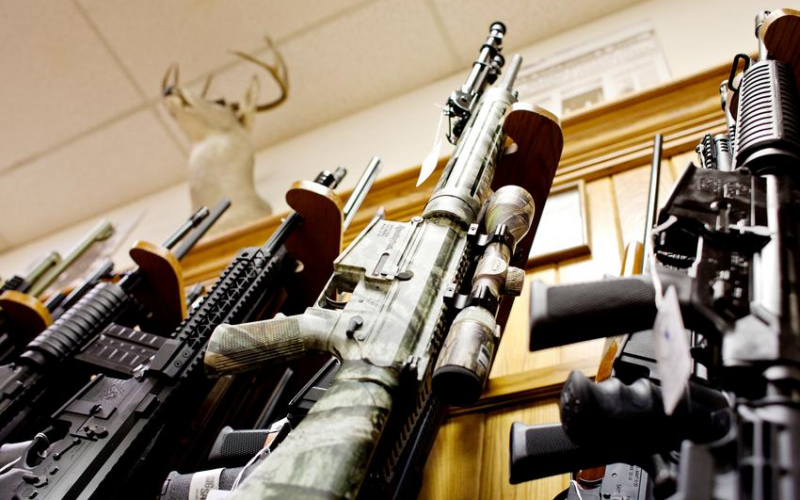The U.S. Supreme Court has declined to review two significant Second Amendment cases, leaving in place lower court rulings on a state ban on high-powered rifles and high-capacity magazines, as well as a federal law prohibiting felons from possessing firearms.
The justices chose not to take up challenges to an Illinois law that bans the sale of high-powered rifles and high-capacity magazines. The law, enacted after a mass shooting in Highland Park on July 4, 2022, has been upheld by a divided three-judge panel of the U.S. Court of Appeals for the Seventh Circuit.
In the Illinois case, Justices Clarence Thomas and Samuel A. Alito Jr. expressed their dissent, indicating they would have reviewed the case. Justice Thomas criticized the lower court’s ruling, suggesting it lacked clarity on what types of weapons are protected under the Second Amendment. “This court must provide more guidance on which weapons the Second Amendment covers,” he wrote.
The Supreme Court also opted not to hear a challenge to a federal law that makes it illegal for felons to possess firearms. Instead, the justices sent related cases back to lower courts for reconsideration in light of their recent decision in United States v. Rahimi. In that case, the Court upheld a similar law that prohibits individuals subject to domestic violence restraining orders from owning guns.
The decision to not hear these cases indicates the Court’s current reluctance to delve further into Second Amendment issues so soon after recent significant rulings. Last month, the Court ruled in favor of maintaining restrictions on firearm possession for those under domestic violence restraining orders, underscoring the complexities surrounding gun rights and public safety.
The Illinois law, which restricts the sale of certain semi-automatic firearms and high-capacity magazines, was challenged on the grounds that it infringes on the constitutional right to bear arms. However, the Seventh Circuit upheld the law, with Judge Diane P. Wood stating that even fundamental rights have limits.
Judge Michael B. Brennan dissented, arguing that the majority did not adhere to the Supreme Court’s precedent set in the 2022 case New York State Rifle & Pistol Association v. Bruen, which emphasized historical practices in assessing the constitutionality of gun regulations.
In the federal felon case, the defendant Bryan Range, who had pleaded guilty to a nonviolent offense in 1995, argued that the law violated his Second Amendment rights. The Third Circuit ruled in favor of Range, finding that the government had not demonstrated a historical precedent for permanently barring individuals like him from possessing firearms.
The Biden administration, which sought Supreme Court review, argued that the Third Circuit’s decision could lead to numerous challenges from other felons seeking to regain gun rights.
The Supreme Court’s decision to remand the felon cases back to lower courts for further review following United States v. Rahimi suggests that the Court prefers to allow lower courts to further interpret recent rulings before making broader judgments on Second Amendment rights.
As the Court refrains from additional Second Amendment reviews, the rulings in the lower courts remain significant for the ongoing national debate over gun control and individual rights. These decisions will likely influence future legal battles over the balance between public safety and constitutional protections.








